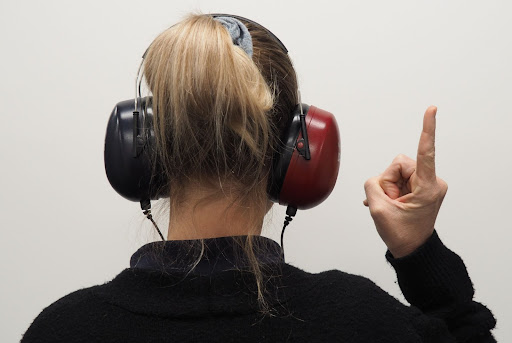Hearing loss can be extremely frustrating because it impacts each individual differently. While some people lose all their hearing slowly, others may find that they can hear particular sound frequencies while others are more difficult to decipher.
Hearing loss happens unevenly, so listening to conversations can become increasingly difficult as you lose the ability to hear at those frequencies.
If you find yourself able to hear small noises but not loud ones, you’ve come to the right place. El Dorado Hearing is here to walk you through the different levels of hearing loss and types of hearing loss, which can help you better understand your hearing limitations.
Levels of Hearing Loss
Your hearing loss can typically be classified into five categories: mild, moderate, moderately severe, severe, and profound.
Your hearing threshold in decibels determines where exactly you fall within the hearing loss scale. Here is a quick breakdown of the different levels of hearing loss:
- Mild hearing loss – Individuals with mild hearing loss often have difficulty deciphering soft sounds or low conversations, especially in circumstances where there is a lot of background noise overshadowing the conversation. Constantly asking people to repeat themselves is a common indicator that they have mild hearing loss.
- Moderate hearing loss – While a person with mild hearing loss can usually piece together specific words in the conversation to understand what is being said, moderate hearing loss makes it extremely difficult to hear when there is a lot of background noise. An indicator of moderate hearing loss is when an individual often turns up the television or radio volume to a higher than normal level.
- Moderately severe hearing loss – At this point, the individual with hearing loss will require hearing aids to understand speech comfortably. The hearing aids will help to amplify the sounds around them, which depending on the hearing aids, may also increase the background noise and make it difficult to decipher the conversation.
- Severe hearing loss – Without hearing aids or a cochlear implant, the individual with severe hearing loss will be unable to hear speech at all.
- Profound hearing loss – With profound hearing loss, the individual has lost the ability to hear even with the help of a heating device. Any sound that is below 90 decibels will go completely undetected by the individual.
If you cannot hear loud noises but can still hear small noises, you likely fall into the mild to moderate hearing loss category.
Different Types of Hearing Loss
Now that we have a better understanding of the various levels of hearing loss, let’s take a look at two different types of hearing loss:
- Conductive hearing loss occurs when there is a mechanical problem within the ear, such as earwax buildup or an ear infection. When the underlying condition is treated through a hearing specialist, the individual will find a treatment plan that closes the gap on any hearing loss.
- Sensorineural hearing loss occurs as the little hairs in the inner ear become damaged. These hairs play an essential role in detecting and transmitting sound to the auditory nerve and brain. When these hairs become damaged, the necessary process for the sound to reach the brain does not happen. Unfortunately, these hairs cannot be restored once lost and can be damaged naturally through aging or by exposure to loud noise, underlying health conditions, or certain medications.
If you can hear small noises but not loud ones, you likely have sensorineural hearing loss. To combat these hearing problems, you may be a candidate for hearing aids which will help pick up the important conversations around you while canceling out some of the background noise that makes it difficult for you to decipher speech.
Schedule an appointment with El Dorado Hearing
If you’re experiencing hearing loss, the skilled audiologists at El Dorado Hearing can perform a diagnostic evaluation and provide the recommended treatment and hearing devices. Contact our experienced team to schedule your hearing evaluation.




Leave a Reply